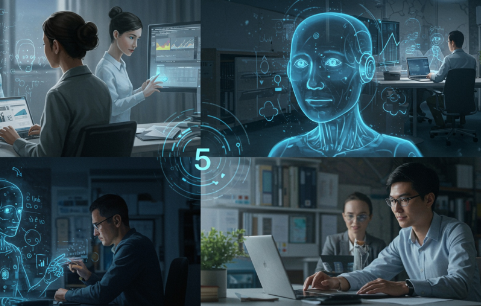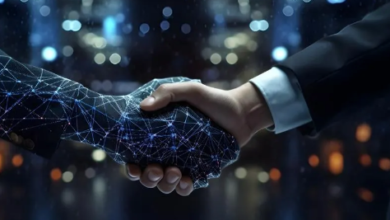How Agentic AI Changes the Way We Interact With Systems

Agentic AI marks a pivotal shift in human-system interactions. By integrating intelligent automation, it significantly enhances operational efficiency while minimizing human error. This technology empowers users with advanced tools that facilitate decision-making through data-driven insights. However, the rapid evolution of agentic AI also raises critical questions regarding trust and accountability within these interactions. Understanding the implications of these changes is essential as organizations navigate this transformative landscape.
The Evolution of AI: From Tools to Agents
The evolution of artificial intelligence (AI) can be delineated into distinct phases, transitioning from basic tools designed for specific tasks to sophisticated agents capable of autonomous decision-making.
This progression has introduced intelligent automation, enhancing the capabilities of autonomous systems. As AI matures, it increasingly embodies self-sufficiency, empowering users with innovative solutions and fostering a landscape where freedom of choice and efficiency are paramount.
Enhancing Efficiency and Decision-Making
As organizations increasingly adopt agentic AI, significant improvements in efficiency and decision-making processes become evident.
Automated processes streamline operations, reducing human error and enabling rapid execution of tasks. Enhanced data analysis capabilities provide organizations with actionable insights, fostering informed choices.
This fusion of technology empowers teams, liberating them from mundane tasks and allowing for a focus on strategic initiatives that drive innovation and growth.
Navigating the Challenges of Trust and Accountability
How can organizations effectively cultivate trust and accountability in the context of agentic AI?
Developing robust trust frameworks and accountability mechanisms is essential. These structures must ensure transparency in AI decision-making processes and establish clear lines of responsibility.
Conclusion
In this new era, agentic AI emerges as a modern-day Prometheus, igniting the potential for innovation while challenging the boundaries of trust and accountability. As organizations harness these intelligent systems, they must navigate the complexities inherent in this transformative relationship. The interplay of efficiency and ethical considerations will shape the future of human-technology interactions, compelling decision-makers to wield their new tools judiciously. Ultimately, the journey toward a harmonious coexistence with AI is just beginning, promising unprecedented opportunities for growth.




